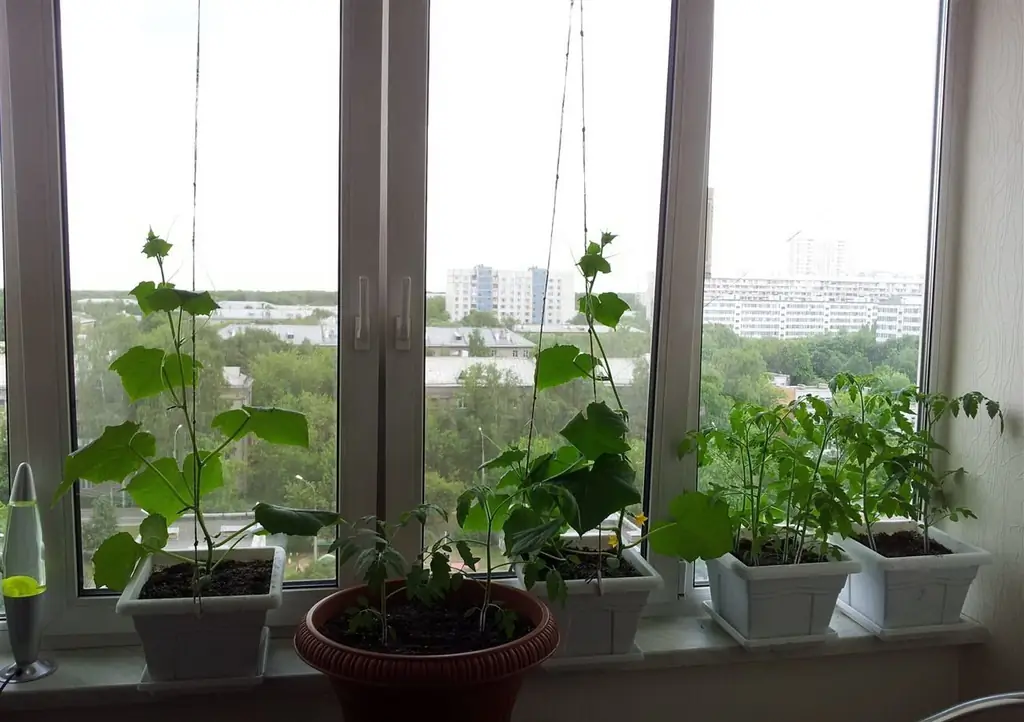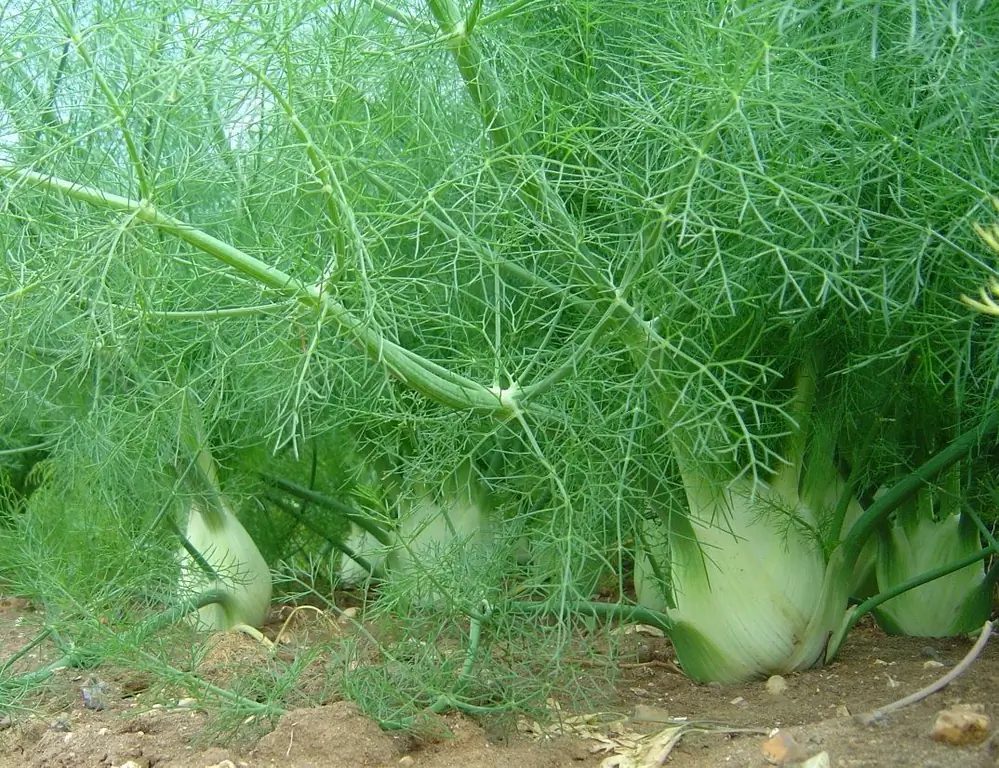
Table of contents:
- Author Bailey Albertson albertson@usefultipsdiy.com.
- Public 2023-12-17 12:53.
- Last modified 2025-06-01 07:32.
Growing potatoes under straw: harvest without costs

Every summer resident dreams of getting the maximum potato harvest at a minimum cost. We are used to spending a lot of time on a potato plantation, weeding, hilling and watering plantings. But once a very simple and effective method was used to grow this crop - the use of straw.
Content
- 1 Growing potatoes under straw
- 2 Step by step description of the process
-
3 Alternative landing methods
- 3.1 Combination of traditional and natural agricultural technology
- 3.2 Valeria Zashchina's method
- 3.3 Growing method with simultaneous harvesting of straw
- 4 Care of the beds
- 5 Harvesting
- 6 Video about growing potatoes under straw - "Garden without hassle"
- 7 Reviews of gardeners about the method
Growing potatoes under straw

Potatoes under straw were successfully grown many years ago
150 years ago, peasants did not have the opportunity to spend time caring for potato plantings. Traditionally, this culture was grown in the following way: tubers were evenly laid out on the plowed land, and the top was covered with a layer of straw 20-50 cm thick. Other plant remains were also used, but it was straw that proved to be the most suitable material.
Growing potatoes under straw is now making a comeback and is gaining popularity due to the simplicity, affordability and effectiveness of the method. This method does not require subsequent weeding and hilling. You can leave the summer months for other things, and in the end you will get a decent harvest.
Covering potatoes with straw has many advantages over traditional cultivation in the ground:
- Straw perfectly protects the soil and everything in it from drying out. It retains moisture and keeps your potatoes cool even on the hottest days.
- When the straw decomposes, it releases carbon dioxide. As you know, it is very useful for potatoes and can act as a fertilizer.
- Straw, especially decomposing straw, is a favorite habitat for worms and microorganisms that have a beneficial effect on the soil. This, in turn, will have a beneficial effect on the growth and development of tubers.
- Insects living in straw are natural enemies of Colorado beetles. You no longer have to spray the potatoes with chemicals, there will be much less bugs.
- Weeds will also cease to be a headache: it is difficult for their shoots to make their way to the sun through a thick layer of straw.
Growing potatoes under straw is applicable to any region. For example, in the middle lane, where summer comes early, and hot days are in May - June. It is at this time that the potatoes begin to sprout and gain strength. At this stage, he needs coolness and moisture, and the straw covering will provide them to the fullest.
In southern regions with warm winters, you can start growing potatoes under straw much earlier than usual, and harvest already at the beginning of summer.
However, there are some disadvantages of the method. If you decide to sow a large area, it will be difficult to get the required amount of straw. In places where the mulch layer is thin, the potato tubers may turn green. In addition, mice sometimes grow in the straw, which will harm the crop.
Step by step description of the process
-
Before planting, mark the area and loosen the soil. To do this, use a hoe or flat cutter. The loosening depth should be about 5 cm. Do not forget that the soil must be moist. Water the soil if necessary after planting the tubers.

Loosening the soil Loosen the soil to prepare it for planting potatoes
-
Place the potatoes in 1 row on the prepared bed. If sowing in 2 rows, arrange the tubers in a checkerboard pattern.

A bed with potato tubers Spread potato tubers on prepared soil
-
To improve growth, you can sprinkle the tubers with soil mixed with fertilizer, humus or peat. There should be very little soil.

Sprinkling potato tubers with soil Sprinkle potato tubers with soil mixed with fertilizer
-
Cover the potatoes with a 25 cm layer of straw. This practically ends the work. Only over time will you need to add mulch if it settles.

A layer of straw on potatoes Cover the potatoes with straw
Alternative landing methods
Many people complain about the bad experience of growing potatoes under straw. Therefore, experts and enthusiastic gardeners have added several of their secrets to the classic method.
Combination of traditional and natural agricultural technology

A soil ridge on the sides of the hole will protect the tubers from washing out
This method is suitable for those who do not have enough straw mulch to fully cover the tubers.
- To get early potatoes, germinate them about 3 weeks before planting. To do this, sprinkle the seed tubers with moistened sawdust, peat or soil and place in a sunny place. After 3 weeks, the tubers will form full sprouts and root bundles.
- The composition of the soil for planting does not matter, since you will not work it too deeply. You just need to make shallow holes with a shovel or hoe.
- Place the potato tubers in the holes and lightly sprinkle them with earth. Form a ridge of soil about 20 cm wide and 10 cm high. This will prevent the tubers from turning green and will not be washed out of the soil during heavy rainfall.
- Place a small layer of dry straw on the sides of the ridge. This will be enough to retain moisture and prevent most of the weeds from reaching the sun. The straw should be on a uniform carpet.
Method Valeria Zashchina

Alternate the potato beds with other vegetables
This young woman has long been known to Internet users for her detailed descriptions of growing fruit and vegetable crops in her own summer cottage.
- The width of each bed, when grown according to the Zashchitina method, should be 50 cm, row spacing - 70-80 cm. Mixed plantings are welcome: Valeria combines potato beds with plantings of other vegetable crops.
- It is advisable to germinate seed tubers in advance, for example, from January, if you plan to plant potatoes in late April or early May. When the soil in the beds warms up, place the tubers directly on it. Lay a layer of straw on top.
- At the end of June and beginning of July, do the rolling uncorking. Spread the bush with "rays" on the ground, without breaking the branches, and sprinkle it on top with straw or other dry grass so that only the tops of the stems remain sticking out. They will rise the next day.
- You can harvest when the peel on the tubers begins to coarse.
Growing method with simultaneous harvesting of straw

By alternating the cultivation of potatoes and grain for straw, you will improve the quality of the soil
If it is difficult for you to get the right amount of straw, you can prepare it yourself at your site:
- Choose the area where you plan to plant potatoes, divide it conventionally in half. When the snow melts and the soil warms up, plant one half with oats, vetch, or other grains. In the second half, plant the potatoes in the traditional way. The site does not need to be plowed.
- Leave the cultures that have grown in the first half of the plot for the winter without removing. Next spring there will be an even layer of fallen straw at this place, which we need for further work.
- Without plowing or digging the soil, plant potatoes directly into this straw. To do this, make small indentations, put the tubers in them and sprinkle with soil 5 cm.
- In the second half, where there were potatoes last year, sow cereals. By next year you will have your straw ready again.
By constantly alternating the cultivation of different crops on two halves of the plot, you will improve the quality of the soil, increase the yield, and every year you will save more and more time spent on planting potatoes
Garden bed care
Some time after planting, you will see strong, healthy potato shoots. At this stage, you need to lay another layer of straw 15-20 cm high. This is necessary to increase the amount of settled mulch.
If you want to use the V. Zashchina method, carry out fan mulching about once a week. When the first shoots emerge from under the straw, gently push them apart and place the rest of the plants in the middle of the bush without damaging the stems. After a week, the tops will come to the surface again, and you will need to add straw and mulch again.

Add straw or mulch as the tops grow
Thanks to this method, the underground shoots on which the tubers are tied are significantly lengthened.
If the summer is too hot, water your plantings with potatoes from time to time. In other cases, this is not necessary - the straw retains moisture well due to the formation of condensation.
To prevent straw from scattering in strong winds, you can cover it with several boards, branches, lay bricks or lightly sprinkle it with earth.
Harvesting
This task is very simple compared to the traditional method of growing potatoes. You will save a lot of time, energy and health - you can forget about back pain after a long work in the garden. When the tops are dry, simply rake the straw off the garden bed and collect the potatoes in buckets and bags.

Pay attention to what size potatoes can be grown under straw
A special charm is that the tubers are even and smooth, and most importantly - dry, without adhering clods of earth, freeing you from unnecessary trouble in cleaning the crop. You don't have to wait for the potatoes to dry in the sun to hide them in the basement.
Video about growing potatoes under straw - "Garden without hassle"
Reviews of gardeners about the method
Danil Mikhailov
https://konstryktorov.net/know-how/sposob-posadka-kartofelya-pod-solomu/
Gesha
https://farmerforum.ru/viewtopic.php?t=939
Svetlana
https://agrolain.ru/kartoshka/vyrashhivanie-kartofelya-pod-solomoj/
Many gardeners who have tried growing potatoes under straw will never want to go back to the traditional method. If you are a busy person, but love to tinker with the beds, this method is just for you, and you will appreciate it!
Recommended:
Growing Cucumbers On A Windowsill In Winter, Which Varieties To Use (with Video)

How to properly grow cucumbers in the winter on the windowsill. Selection of varieties, germination of seeds, planting seedlings, soil preparation
Growing Peas In The Open Field, Agricultural Technology + Photo And Video

Detailed recommendations for growing peas at their summer cottage. Preparing the soil, germinating seeds, caring for the plant during growth. Disease and pest control, harvesting
Growing Fennel From Seeds (including Vegetable Seeds) At Home And In The Garden + Photo And Video

Practical tips for growing fennel from seed. Fennel species, varieties suitable for growing in the middle lane
Rules For Growing Strawberries In A Greenhouse All Year Round + Video

Growing strawberries in a greenhouse all year round using various methods. Preparation of premises and equipment, soil, seedlings. Planting and caring for strawberries
Riviera Potatoes - Description Of The Variety With Photos, Planting, Care And Other Aspects + Video And Reviews

Riviera potatoes - description, characteristics, nuances of planting and growing with photos
